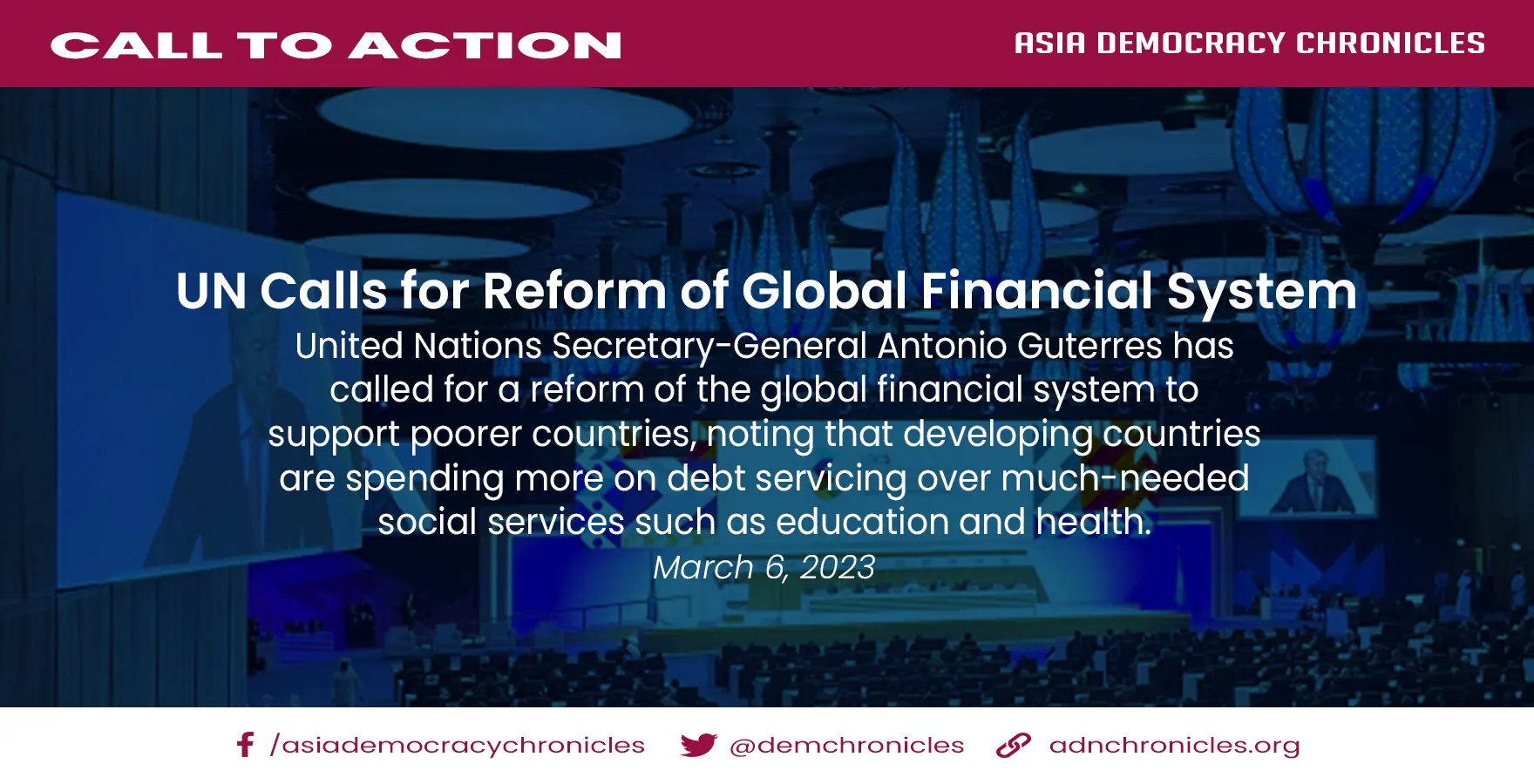|
Getting your Trinity Audio player ready...
|
6 March 2023
DOHA—United Nations Secretary-General Antonio Guterres, on March 5, calls for reform of the global financial system through a new Bretton Woods moment to support the Least Developed countries.
During the plenary session of the Fifth United Nations Conference on the Least Developed Countries (LDC5), Guterres said international financial institutions must develop new creative ways to ensure that financing can be extended to countries that need help the most.
“This includes expanding contingency financing and integrating disaster and pandemic clauses into debt instruments,” Guterres emphasized.
He added, “it is also time to accelerate the re-allocation of Special Drawing Rights from the richest countries to those who need help the most.”
Guterres highlighted that currently the situation is getting worse with 25 developing economies spending over 20 per cent of government revenues on servicing debt, not on building schools, feeding people or expanding opportunities for women and girls.
In the meantime, the UN secretary-general also proposed that multilateral development banks transform their business model to enable massive leverage of their fund, attracting private finance flows into developing countries, particularly in the least developed countries, at an acceptable cost.
“And we must find new, common-sense ways to measure countries’ economies — such as developing lending criteria that go beyond Gross Domestic Product to provide a true view of the value of natural capital such as preserving forests and watersheds and marine resources,” he stressed.
The LDC5, which is held in Doha from March 5-9, gathers world leaders together with civil society, the private sector, and young people to build plans and partnerships to ensure proper support that meets the needs of least developed countries, especially the implementation of the Doha Program of Actions (DPOA) in the next decade.
The DPOA, adopted in March 2022 during the first part of the LDC5 conference on March 17, 2022, is designed to support least-developed countries to graduate from least developed country status through practical international support measures. It encompasses six key priorities, including investing in people, ensuring structural transformation, and dealing with climate crisis—all vital in assisting least-developed countries towards middle-income status.
Currently, there are 46 countries categorized as least developed countries—33 of which are in Africa, 12 in the Asia Pacific and one in the Caribbean.
SDG stimulus is needed to assist LDCs
With timely and proper support, many countries, especially least developed countries, will unlikely achieve sustainable development goals by 2030.
In this regard, Guterres said there is the need to put forward an SDG Stimulus to gather the world around the need to provide at least $500 billion annually to developing countries.
“It’s also high time that developed countries live up to their commitment to providing Least-Developed Countries with 0.15 – 0.20 per cent of their Gross National Income for Official Development Assistance,” he stressed.
He continued that the international community also must expand efforts to fight tax evasion, money laundering and the illicit financial flows that drain domestic resources.
“While no country or region is immune, lower-income countries lose a much higher proportion of their tax revenues to tax abuse — while having the least influence on global taxation rules,” said Guterres.
More importantly, according to him, least developed countries need funding and support for structural transformation to climb the value chain.
Meanwhile, he highlighted that to address the challenges facing least developed nations, ensuring the effective and timely implementation of the Doha Programme of Action is critical.
“It contains concrete targets and deliverables such as a ‘Sustainable Graduation Support Facility,’ an ‘Investment Support Centre’, and an ‘Online University’, which can play a game-changing role in implementing the Sustainable Development Goals in the least Developed Countries,” he added. #



















